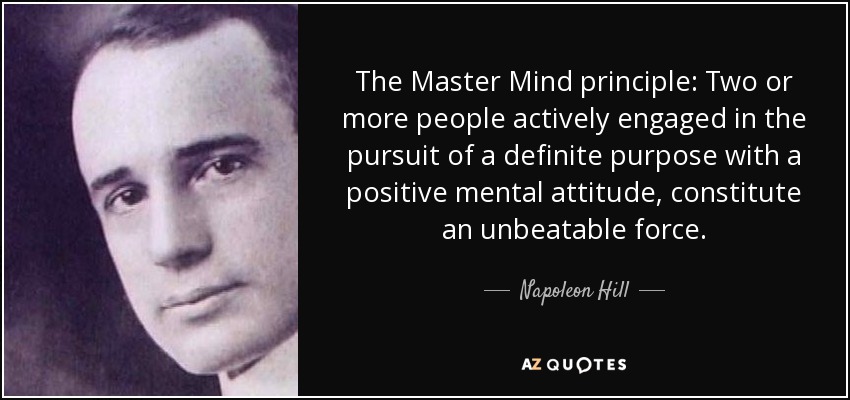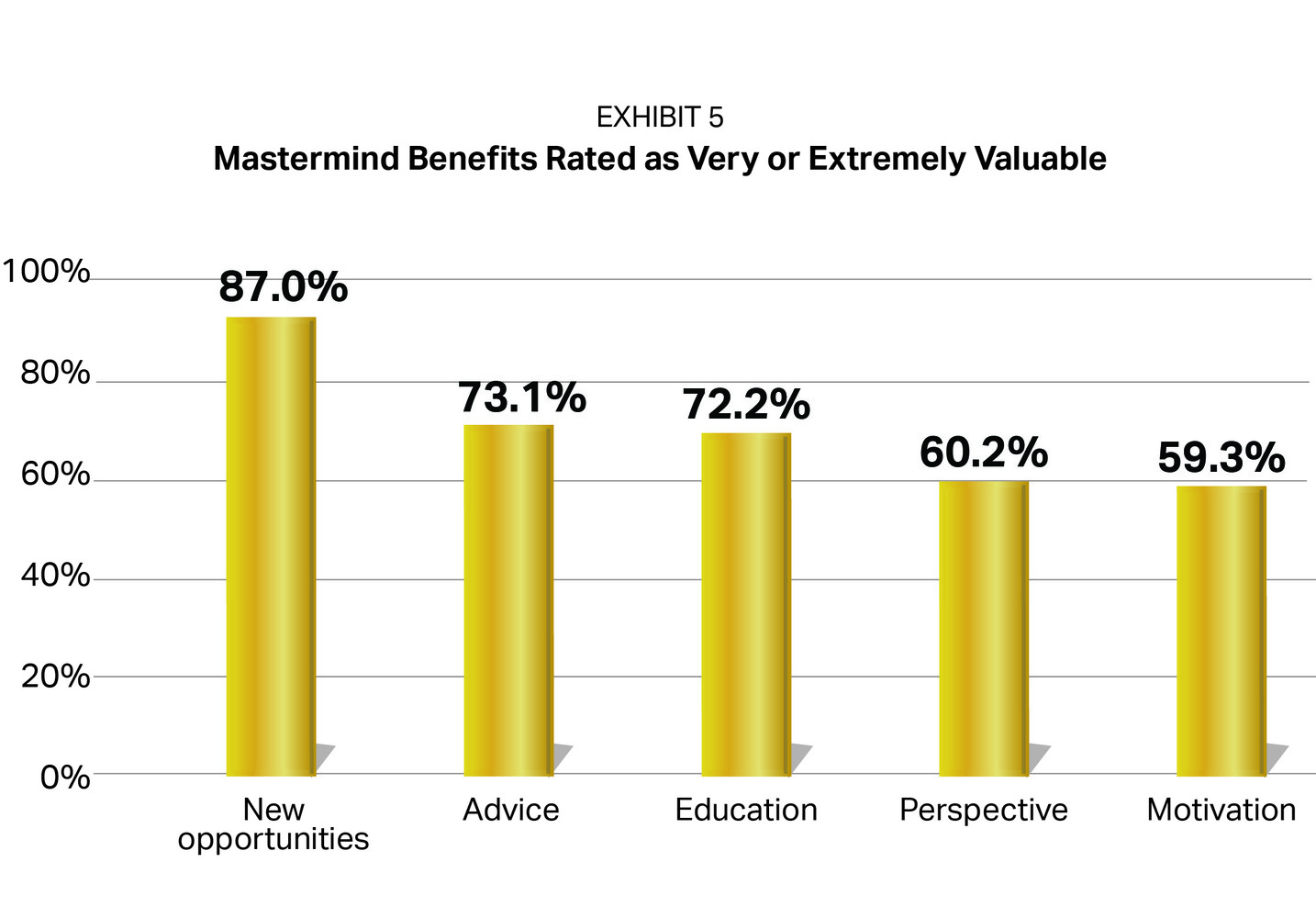Being a part of a mastermind was one of the best investments I’ve made for my personal and professional life. Hands down.
You’ve probably heard about them, maybe even considered joining one. But let’s be real—are masterminds actually worth it? That’s the big question. You’re not just investing your time, but potentially a lot of money, so it’s important to know if they deliver the kind of ROI you need.
Masterminds are built on the idea that two heads—or in this case, a group of them—are better than one. It’s about collective thinking, accountability, and leveraging the experience of others to solve your biggest challenges.
According to research, accountability can increase goal-setting success by up to 95%! That’s the kind of power masterminds bring to the table.

In this post, I’m going to dig deep into what a mastermind really is, how it works, the benefits, and whether it’s worth your investment. If you’re serious about growth, understanding how a mastermind can fit into your strategy is crucial.
What is a Mastermind Group?
Mastermind groups are like the secret weapon of successful entrepreneurs, high achievers, and anyone serious about leveling up. But what exactly are they?
A mastermind group is a small, focused group of people (usually 5–12) who meet regularly to push each other to achieve goals, hold each other accountable, and share valuable insights. Think of it as a collective brainpower session.
The concept was popularized by Napoleon Hill in Think and Grow Rich, and it’s taken off since then. Everyone from CEOs to startup founders uses them to solve business challenges, get feedback, and scale faster.

How they work: Members meet weekly, bi-weekly, or monthly—either online or in person. Meetings usually involve “hot seats,” where one member shares a current challenge, and the group offers advice and strategies.
The power here is that you’re getting feedback from multiple people with different experiences, which can open doors to solutions you wouldn’t have thought of on your own.
For illustration, 60% of people in mastermind groups say that the new perspectives and motivation are the greatest benefit.

Mastermind groups also offer an element of accountability. When you’re part of a group that’s expecting you to follow through, you tend to get things done. You’re no longer just making promises to yourself—you’ve got a whole crew of people keeping you on track.
How Do Mastermind Groups Work?
Masterminds aren’t just casual get-togethers—they run on a structured format designed to drive real results. Here’s how they typically work:
1. Regular Meetings Most mastermind groups meet weekly, bi-weekly, or monthly. Consistency is key. These meetings can be in person, but more often than not, they happen virtually through Zoom or other platforms.
Each meeting usually lasts about 60-90 minutes. During this time, members share updates on their progress, challenges they’re facing, and goals they’ve set.
2. The “Hot Seat” One of the core elements of a mastermind is the hot seat session. This is where a member takes the spotlight to present a challenge or issue they need help with. The group then jumps in with advice, suggestions, and ideas.
The power here is in the diverse perspectives—what seems like a huge problem to one person might be easily solvable by another who’s been there before.
3. Accountability Mastermind groups thrive on accountability. When you tell a group you’re going to do something, you’re much more likely to follow through.
Research shows that having accountability can increase the likelihood of success by up to 65%. This kind of support system helps you stay focused, avoid procrastination, and actually take action on the strategies discussed.
Take my mastermind for example. My friends and I discuss our goals and progress, and the next time we meet up, we share updates. It holds you accountable to take action and have something to show.
4. Goal Setting Each member sets clear, actionable goals, and the group helps track progress over time. These aren’t just vague aspirations—masterminds are about setting specific, measurable objectives and checking in on them regularly.
5. Peer-to-Peer Support You’re not just getting feedback from one person, you’re tapping into the collective knowledge and experience of the entire group. That’s the magic of a mastermind. Whether it’s navigating a tough business decision, exploring new marketing strategies, or scaling your operations, the group provides the insights you didn’t know you needed.
Pro Tip: The best mastermind groups have a strong, committed facilitator who keeps things on track and ensures everyone gets value out of each meeting. If you’re joining one, make sure the facilitator is experienced and knows how to manage the group effectively.
With this structure, mastermind groups aren’t just about sharing ideas—they’re about getting real, actionable advice and staying accountable to your goals. Next, let’s look at why people swear by these groups and the specific benefits they offer.
The Benefits of Joining a Mastermind
Let’s get into the real reason people join masterminds: results. You’re not just showing up to chat about business or personal development; you’re there to grow. And masterminds, when done right, can deliver some game-changing benefits.
1. Accountability = Action
We all set goals, but how often do we actually follow through? The truth is, without someone checking in on your progress, it’s easy to slack off. In a mastermind, you’re surrounded by people who won’t let that happen.
When you know your group is going to ask you what you’ve done since the last meeting, you’ll make sure you get it done. No more excuses.
2. Diverse Perspectives
Everyone in a mastermind brings different experiences and expertise to the table. That’s the beauty of it. Stuck on a marketing problem? Someone in your group might be a digital marketing pro. Unsure how to scale? Another member could have already built a seven-figure business.
These diverse perspectives open doors to solutions you wouldn’t come up with on your own. You’re getting feedback from people outside your bubble, which makes all the difference.
3. Fast-Track Learning
Why spend years figuring things out on your own when you can learn from others’ mistakes and successes? In a mastermind, you’re learning from people who’ve been there, done that. Whether it’s business strategies, personal growth hacks, or navigating tough challenges, you get access to insights that save you time and energy. It’s like compressing years of experience into months.
4. Networking on Steroids
Masterminds aren’t just about learning—they’re about building a network. But it’s more than just “networking” in the traditional sense. You’re forming deep relationships with people who are invested in your success. These are connections you can tap into for collaboration, business opportunities, partnerships, or even future clients. You’re not just meeting people—you’re building a circle of trusted advisors.
5. Boost in Confidence
The power of a mastermind goes beyond just business results. When you’re surrounded by high-achievers who push you to be your best, your mindset shifts. You gain confidence in your abilities because you’re consistently taking action and seeing results. Plus, when you’re in a room with people who believe in you and challenge you, you start to believe in yourself even more.
Pro Tip: Choose a mastermind group with members at or above your current level of success. This ensures you’re constantly challenged and growing—because if you’re the smartest person in the room, you’re in the wrong room.
Are Masterminds Worth the Investment?
Now, let’s talk about the elephant in the room—are masterminds really worth the cost? Because, let’s face it, some of these groups don’t come cheap. You’re investing time, money, and energy. So the real question is: will you get a return on that investment?
1. Financial Investment
Masterminds can range from free peer-led groups to high-ticket programs that cost thousands (sometimes tens of thousands) of dollars annually. The price depends on who’s running it, the level of expertise, and what’s included. The average paid mastermind can cost anywhere from $1,000 to $25,000 per year, depending on the caliber of the group.
But here’s the thing—you’re not just paying for access to a group. You’re paying for results, connections, and the potential to scale your business or personal growth faster than you would on your own. Think of it as an investment in your future.
2. Time Investment
Most masterminds meet once a week or once a month, typically for 60–90 minutes. If you’re serious about growth, you need to carve out that time. But it’s more than just showing up for the meetings. You’ll need to prepare, reflect on your goals, and actively engage with your group.
Ask yourself this: Would you benefit from a structured time commitment to focus on your business or personal development? If the answer is yes, then this time spent could yield big returns.
3. Return on Investment (ROI)
Let’s break down the ROI. When you’re in a well-run mastermind group, the potential benefits can far outweigh the cost. You can find new business clients, opportunities, and venture partners.
But it’s not just about the financial returns. The connections, partnerships, and collaborations that come from these groups can be invaluable. You’re building a network of like-minded people who are invested in your success.
That brings me to my next point.
4. Non-Financial ROI
Masterminds aren’t just about boosting your bottom line. There’s also a huge personal development component. You’ll see improvements in your mindset, decision-making, and overall confidence. The personal growth that comes from being part of a mastermind is often cited as one of the biggest non-financial benefits.
Actionable Tip: If you’re on the fence about joining a mastermind, do your research. Look for groups with a strong track record of success, credible facilitators, and members who are serious about achieving their goals. That way, you’ll know you’re putting your time and money into something that can actually deliver results.
How to Choose the Right Mastermind for You
Not all masterminds are created equal. Some are transformative, while others might just feel like another meeting on your calendar. So how do you choose the right one? Let’s break down the process so you don’t waste your time or money.
1. Define Your Goals
Before joining any mastermind, get crystal clear on why you’re doing it. Are you looking to scale your business? Build better habits? Grow your network? Knowing your goals upfront will help you find a group that aligns with what you need. Remember, the more aligned the mastermind is with your goals, the better your chances of getting the results you want.
Actionable Tip: Write down your top 3 goals for joining a mastermind. Use these goals to evaluate potential groups. If they don’t seem aligned with what you want to achieve, keep looking.
2. Look at the Group’s Track Record
The best masterminds have a proven history of success. Before committing, dig into the group’s results. Talk to current or past members if possible. Check for testimonials, success stories, and case studies. A mastermind’s reputation is everything, and you want to make sure you’re investing in a group that delivers.
Actionable Tip: Reach out to someone who’s been in the mastermind before and ask about their experience. How did the group help them? Did they hit their goals?
3. Evaluate the Facilitator
The facilitator can make or break the mastermind. If they’re experienced, they’ll know how to keep things on track, manage group dynamics, and make sure everyone gets value. If they’re disorganized or inexperienced, you’re wasting your time. You want a facilitator who has both the experience and the skills to guide you toward your goals.
Pro Tip: Choose a facilitator who’s already achieved the level of success you’re aiming for. They should be someone you respect and can learn from.
4. Size of the Group
Size matters in masterminds. Too small, and you might not get enough diverse perspectives. Too big, and you’ll feel like just another face in the crowd. Most successful masterminds stick to groups of 5–12 members. This ensures everyone gets a chance to participate and the feedback is personalized.
5. Commitment Level
Let’s be real. Masterminds are only as valuable as the commitment of their members. You need to be in a group with people who are as serious as you are. If you’re in a room full of people who aren’t taking it seriously, it’s a waste of time. Look for groups that require an application process—this typically ensures a higher level of commitment from members.
Actionable Tip: Make sure you’re ready to commit, too. Masterminds are not passive—you get what you put in. If you’re ready to show up, engage, and implement, then you’ll see results.
Conclusion: Are Masterminds Worth It?
At the end of the day, mastermind groups can be a total game-changer—but only if you’re ready to put in the work. They offer accountability, diverse perspectives, and a network that can fast-track your success.
Whether you’re looking to scale your business, boost your personal development, or simply need a group of high-performers to push you, masterminds deliver results.
If you’re on the fence, start by defining your goals and then look for masterminds that align with them. Do your research, evaluate the group and the facilitator, and then make the leap. A mastermind could be exactly what you need to break through to the next level.
Schedule a free consultation to learn more about my marketing services that will help your business drive more revenue.














